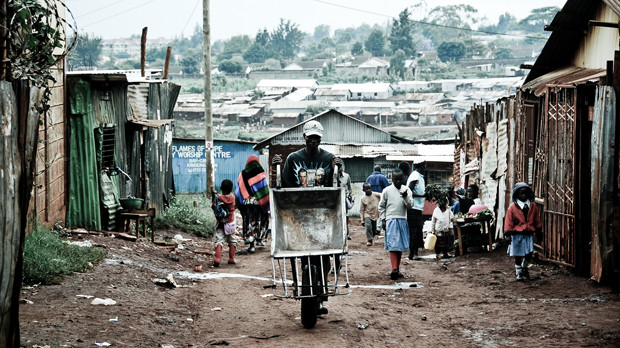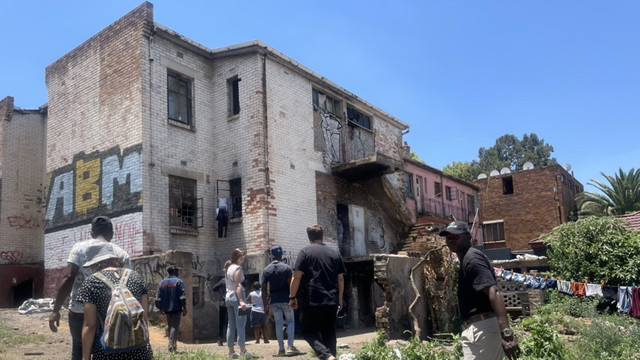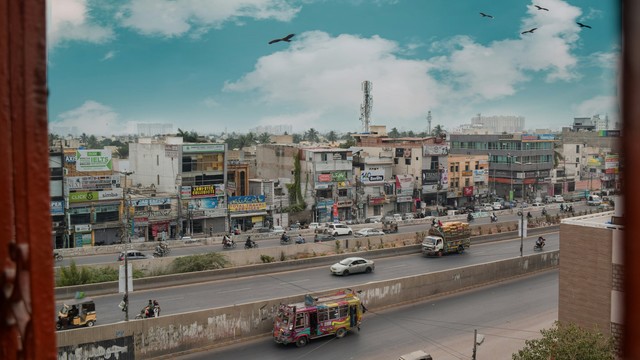Recognising urban rights: global debates and local struggles
Global debates can help frame how human rights in the city are recognised but are often far removed from processes that affirm rights at local level.


The Kibera informal settlement, in Nairobi, Kenya, is the biggest in Africa and one of the biggest in the world. The rights of all must be incorporated into the 'new urban agenda' (Photo: Steffan Jensen/www.reversehomesickness.com, CC BY-SA 2.0)
The Barcelona 'thematic meeting on public spaces' concluded that "the new urban agenda is a unique opportunity for state authorities at all levels to realise the human rights of all inhabitants". This and other events held in the run-up to Habitat III have led to extensive discussion around the role of human rights in promoting sustainable, inclusive and equitable urbanisation.
The recently-released zero draft of the 'new urban agenda' which will define Habitat III includes support for landmark international agreements such as the Sustainable Development Goals (SDGs) and the Paris Agreement.
While the Universal Declaration of Human Rights is also endorsed in the zero draft, the calls to recognise rights in the city remain vague and there are no commitments to realising these rights in practice, prompting a provocative debate on how to incorporate human rights in urban agendas.
During the various events and discussions, human rights have been approached in different ways:
- Specific human rights: I recently attended a meeting in New York convened by the UN Office of the High Commissioner for Human Rights (OHCHR) to explore how international human rights relate to the new urban agenda. Discussions focused on the right to housing and how Habitat III could include targets to end homelessness and forced evictions by 2030.
The right to housing is undoubtedly an important right, as are the associated targets. However, a whole host of informal and insecure tenure and housing arrangements characterise low-income urban communities, particularly in the global South, as well as homelessness and forced evictions.
Realising rights in cities with high degrees of informality is challenging, and the discussion around the right to housing highlighted how attempts to establish rights for some groups can unintentionally exclude others. It also illustrated how focusing on one specific right risks overlooking interdependent social and economic rights, including water, sanitation and transport.
- The Right to the City: Conceived by French philosopher Henri Lefebvre in 1968, the Right to the City contends that urban rights should go beyond individual state citizen rights. It focuses on citizens' collective potential to transform processes of urbanisation around their needs in the city.
In the lead-up to Habitat III there have been attempts to develop the idea around the role that citizens can play (PDF) in realising their Right to the City.
However, efforts to include a meaningful commitment to this vision in the new urban agenda have been unsuccessful, with several member states, including the United States, rejecting the idea on the grounds that it was difficult to interpret, ambiguous and without specific actions.
Grassroots processes can reaffirm rights
Despite the absence of any specific human rights or the Right to the City in the zero draft, the new urban agenda provides an opportunity to link existing global human rights – particularly economic and social rights such as water, sanitation and housing – to the SDG agenda in cities.
These interconnected rights can usefully underpin SDG goals that aim to universalise access to services, and strengthen endeavours to build equitable access and promote participation.
Beyond New York boardrooms, the actions of grassroots organisations in informal urban settlements demonstrate how collective action around basic needs can be transformative at the community and city level.
Federations of the urban poor such as Slum Dwellers International engaged in community-led upgrading processes do not see themselves as beneficiaries of rights. Instead they are engaged in partnering with city authorities and building 'active citizenship' that affirms rights, but which is not necessarily a rights-based approach.
This often involves struggling against the criminalisation of informal activities that low-income groups engage in to realise their basic needs.
Discussions during the OHCHR meeting highlighted the need to decriminalise homelessness. However, low income urban communities in the global South are also routinely criminalised for the homes they build, the land on which their communities exist, and the water and electricity they use. They are even punished for having toilets that contravene regulations.
Debates ahead of Habitat III show the importance of global processes in establishing how human rights can develop cities that are just, inclusive and sustainable.
But these processes must go hand in hand with participatory action at the local level that builds rights from the bottom up, ensuring that basic services are accessible, adaptable and affordable to all.
Anna Walnycki (anna.walnycki@iied.org) is a researcher in IIED's Human Settlements Group.



